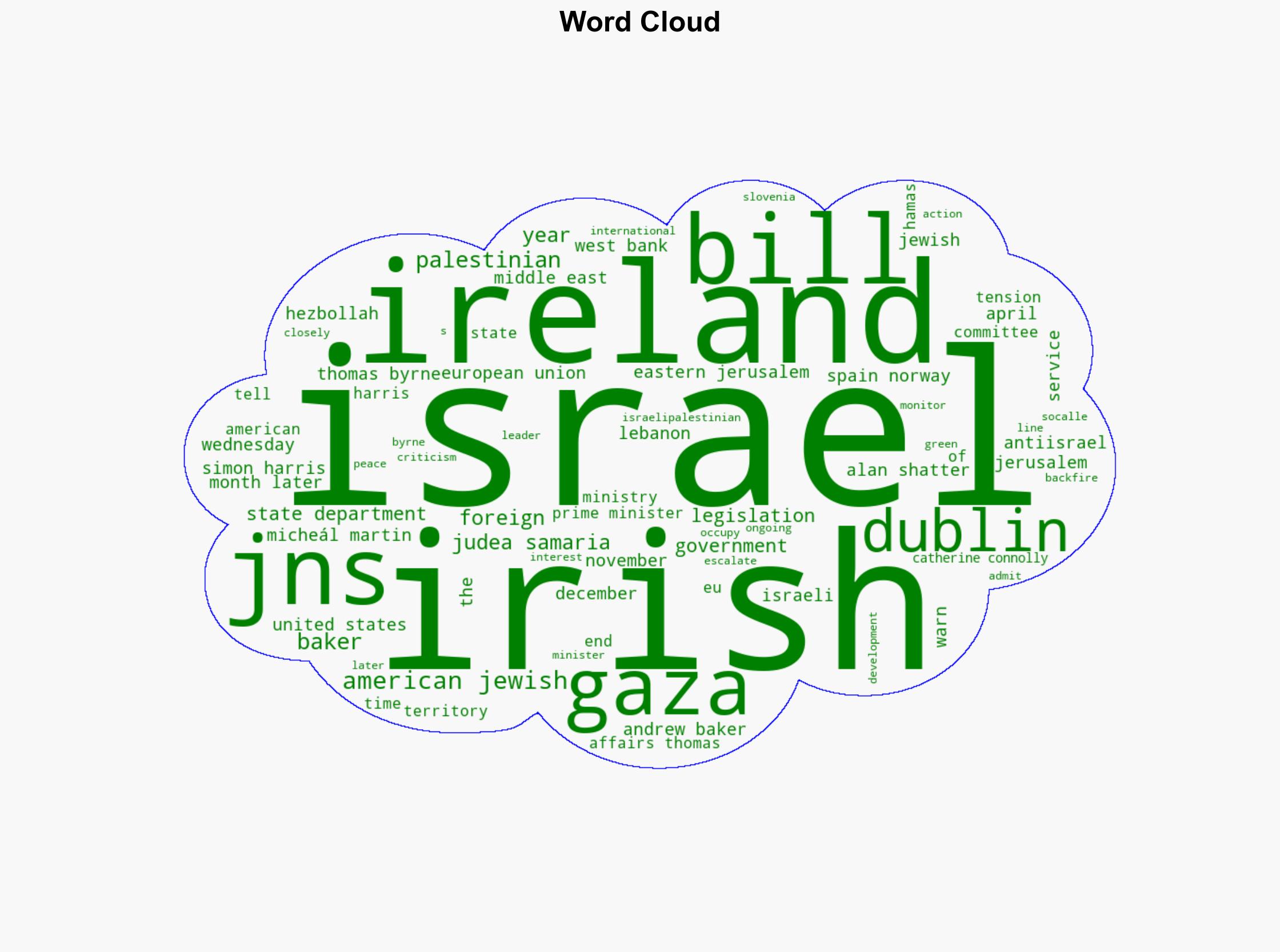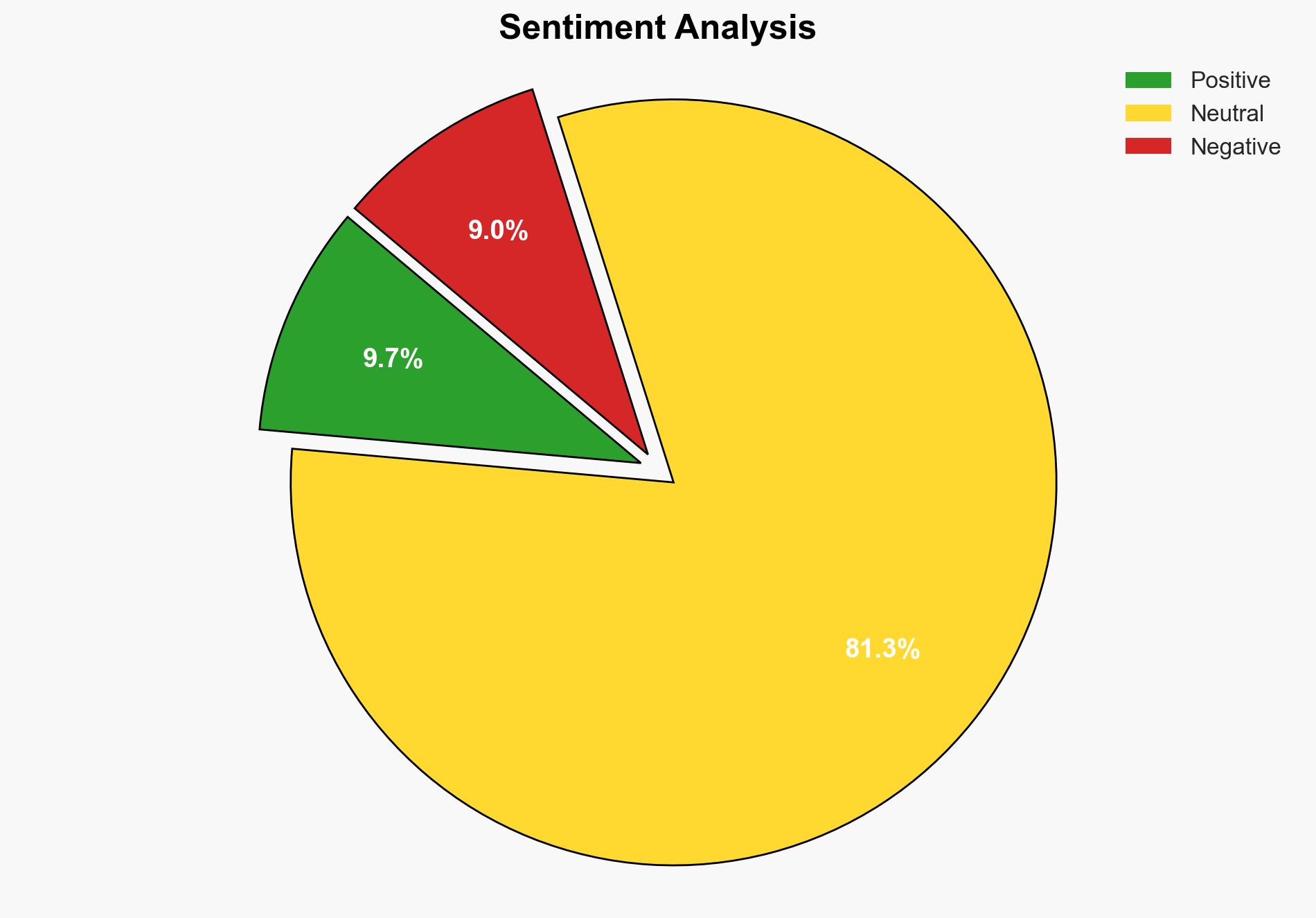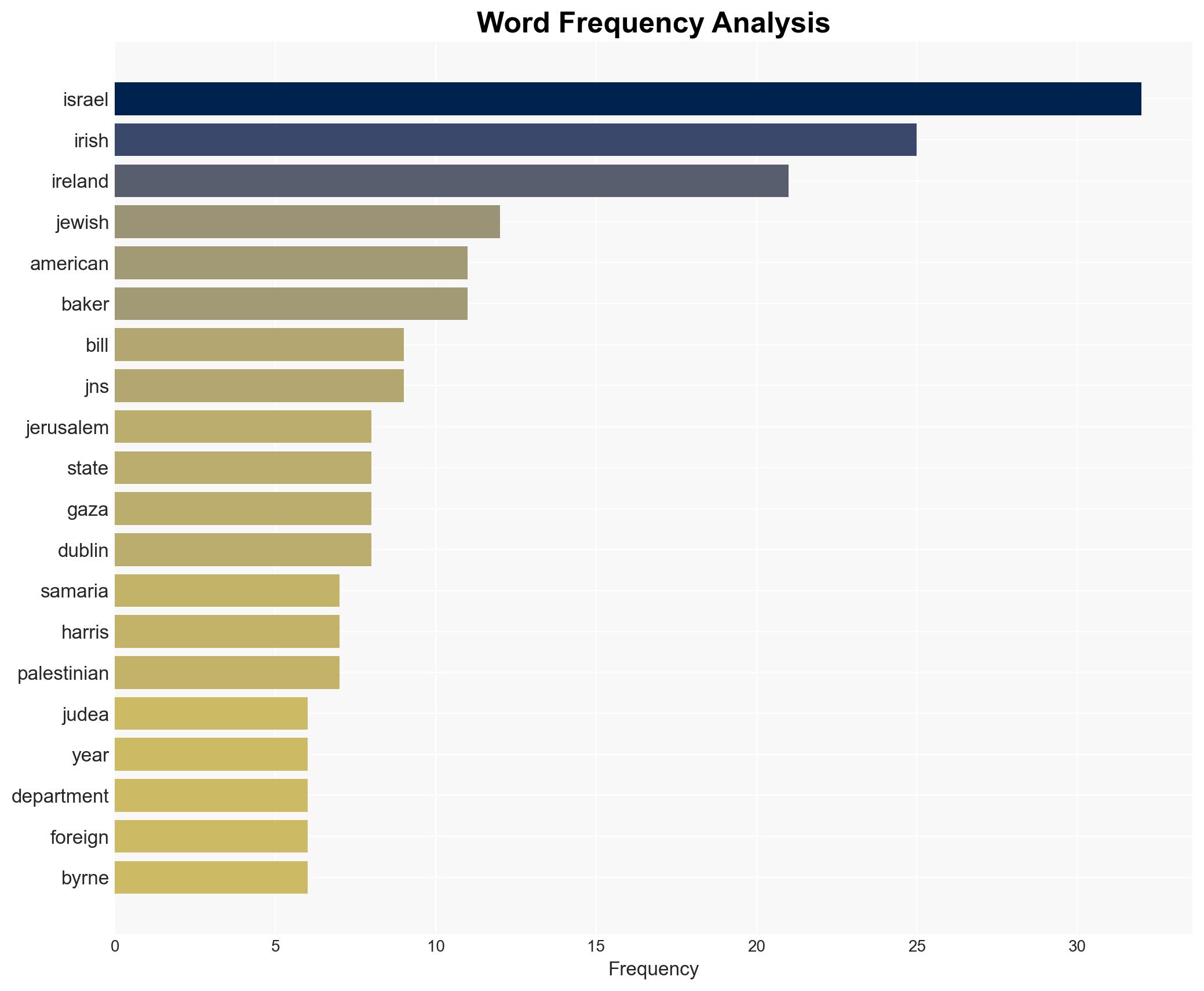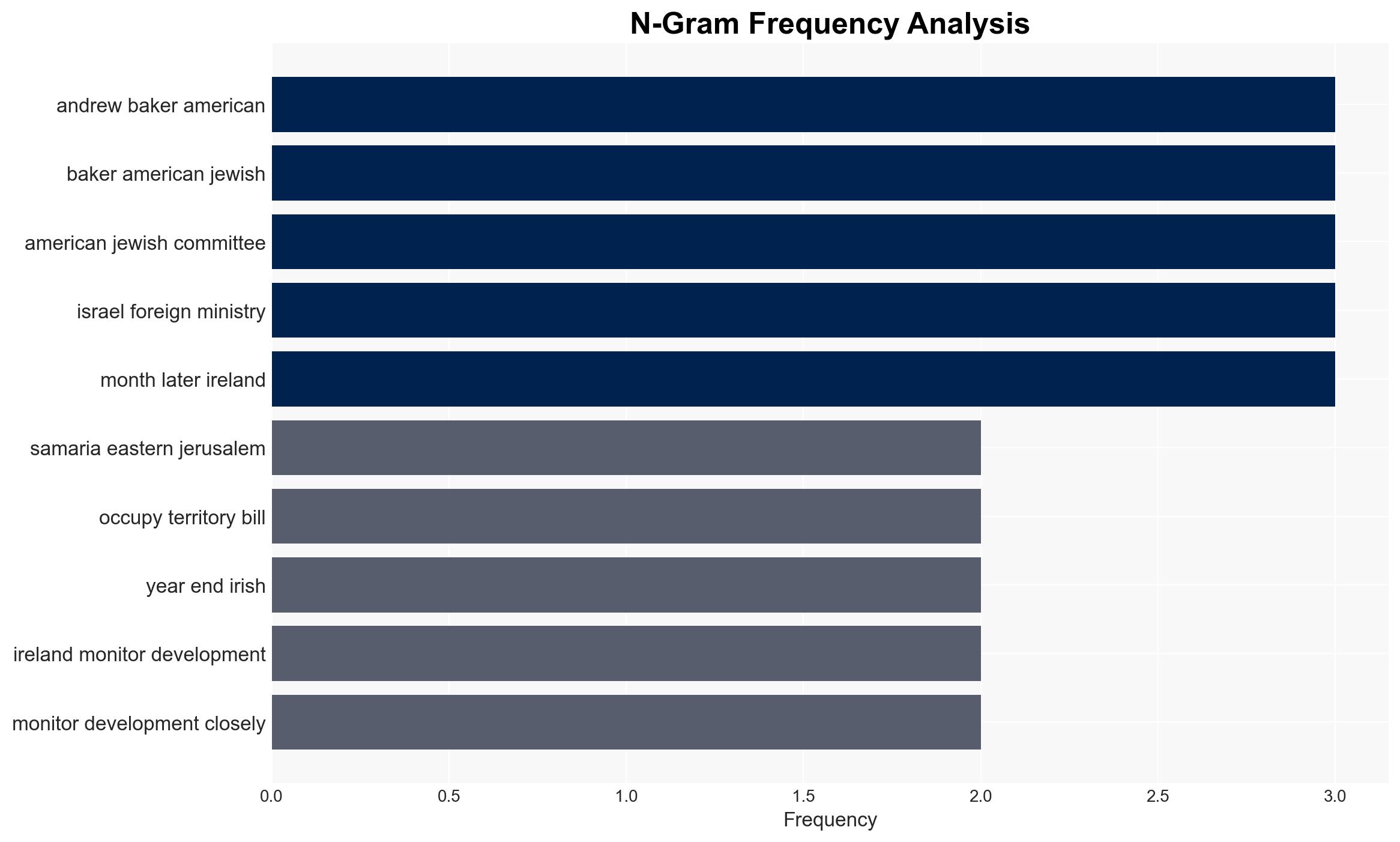Ireland advances anti-Israel boycott bill US warns of consequences – Israelnationalnews.com
Published on: 2025-11-20
AI-powered OSINT brief from verified open sources. Automated NLP signal extraction with human verification. See our Methodology and Why WorldWideWatchers.
Intelligence Report:
1. BLUF (Bottom Line Up Front)
The advancement of Ireland’s anti-Israel boycott bill is likely to strain diplomatic relations with the United States and Israel, potentially leading to economic repercussions for Ireland. The most supported hypothesis is that Ireland is prioritizing domestic political gains over international diplomatic relations. Confidence Level: Moderate. Recommended action: Engage in diplomatic dialogue to address concerns and mitigate potential economic impacts.
2. Competing Hypotheses
Hypothesis 1: Ireland is advancing the anti-Israel boycott bill primarily to appease domestic political factions and gain political leverage within the EU.
Hypothesis 2: Ireland is genuinely committed to influencing the Israeli-Palestinian conflict through symbolic gestures, despite potential diplomatic fallout.
Hypothesis 1 is more likely due to the timing of the bill’s advancement following recent political shifts in Ireland and the EU context, suggesting domestic political motivations outweigh international considerations.
3. Key Assumptions and Red Flags
Assumptions: Ireland assumes the EU will support or at least not oppose the bill, and that the economic impact will be minimal.
Red Flags: The rapid advancement of the bill without substantial debate indicates potential political maneuvering. The lack of engagement with key stakeholders, such as the US and Israel, suggests possible underestimation of international backlash.
4. Implications and Strategic Risks
The bill’s passage could lead to heightened diplomatic tensions between Ireland and the US, potentially affecting trade relations. It may also embolden other EU countries to pursue similar legislation, escalating regional tensions. Economically, US businesses in Ireland could face increased scrutiny or operational challenges.
5. Recommendations and Outlook
- Engage in diplomatic dialogue with the US and Israel to clarify Ireland’s position and intentions, aiming to mitigate potential economic and diplomatic fallout.
- Monitor EU member states’ reactions to gauge broader regional implications and prepare for potential collective EU actions.
- Best Scenario: Ireland successfully navigates diplomatic tensions, maintaining economic stability while addressing domestic political concerns.
- Worst Scenario: Significant economic repercussions from strained US relations, coupled with increased regional tensions within the EU.
- Most Likely Scenario: Diplomatic tensions rise, but economic impacts are contained through strategic dialogue and negotiation.
6. Key Individuals and Entities
Micheál Martin, Catherine Connolly, Thomas Byrne, Rabbi Andrew Baker, Alan Shatter.
7. Thematic Tags
Counter-Terrorism, Diplomatic Relations, Economic Impact, EU Politics, Israeli-Palestinian Conflict
Structured Analytic Techniques Applied
- ACH 2.0: Reconstruct likely threat actor intentions via hypothesis testing and structured refutation.
- Indicators Development: Track radicalization signals and propaganda patterns to anticipate operational planning.
- Narrative Pattern Analysis: Analyze spread/adaptation of ideological narratives for recruitment/incitement signals.
Explore more:
Counter-Terrorism Briefs ·
Daily Summary ·
Support us





